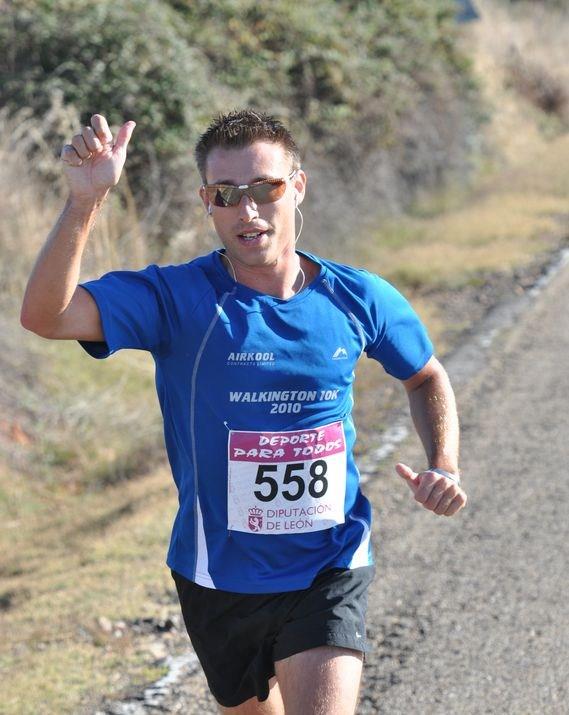On 9 October 2011 the car that Oliver Johnston was travelling in, as he made his way back from the Leon 10k in Spain, left the road, at speed and smashed into a concrete bridge. It was a miracle that he was pulled out of the wreckage alive and he was told that he would never run again.
Oliver has been keeping us posted on his progress. Last May he completed the Beverely 10k in less than an hour and here he provides an update on his progress since then and his inquiry into British Paralympic Association classification.
After the sufferfest that was the Beverley 10km, I had no real inclination to run such a distance and maybe spend the next week in pain and barely able to move. So, on new year's day I tested myself over the shorter distance of 3km in an organised charity run in Beverley.
Look, it still felt pretty horrible: my stride is short, I can feel that I am lacking strength and propulsive power, I can feel the feet not striking, flexing and pushing off properly throughout the gait action. My feet still feel like two unresponsive lumps attached to my legs. General cardiovascular and physical fitness is not now too much of a problem, but I am having to put in a much greater shift just to maintain a half-way respectable speed with lots of ineffective little steps just to make progress. I was helped over the last few minutes as Harder Than You Think (by Public Enemy), Channel 4's theme tune for the 2012 Paralympic Games, came crashing through my headphones.
Running is not really going to happen for me anymore, not seriously, not in any sport that really needs it. I know that now, over two years on, but it is still hard to accept so I will still try to participate in this way now and again.
In November last year I attended a British Paralympic Association classification centre. If a return to my prior sporting interests at a competitive level was not going to be possible, then I wanted to explore other realistic opportunities to compete on a level playing field in whatever sports may sensibly be open to me. The BPA was very helpful and encouraging, in essence fast-tracking me past the talent spotting stage straight to one of the few classification places - there is a long waiting list and they can only process a handful of candidates at each session.
Unfortunately while the classifiers confirmed that I was certainly incapacitated, in that I have disabilities with regard to movement and function that able-bodied people do not suffer, I did not score sufficient points on the scoring criteria to fall into the paralympic category relating most closely to orthopaedic injuries of my nature. Sensibly, there can be only a limited number of categories, and sensibly they are more likely to reflect the severest of impairments. As an International Paralympic chief has said: "if we could classify everybody, then everybody would have a classification".
So who knows? Had I only gone through the motions over the last two years, doing only what I was told to do, attending my physiotherapy and treatment appointments for only the prescribed time allotted and not doing more, pushing more, seeking out what might be of additional help, taking absolute, total, full-time personal and often independent responsibility for my recovery, then I might have consolidated my very serious injuries into serious long-term incapacitation (and consequences), and might, but nothing more than might, have qualified for a Paralympic classification. However, that would have been perverse, and it is not my way, and I would have been stuck with those physical impairments for the rest of my life with all that entails for everything that I might want to do or enjoy. The classifiers, like everybody else, gave me a lot of credit for coming back from those injuries in the way that I have and for taking on an unassisted 10km race. You know that I am not so easy-going on myself, though.
So I now find myself in a strange limbo. I am not incapacitated enough for para-athletics classification purposes (there may be other para-sports open to me; infuriatingly they all have their own classification criteria), so by default and exclusion I fall into the able-bodied category, although I am clearly, definitely not able-bodied and cannot compete against people who are.

